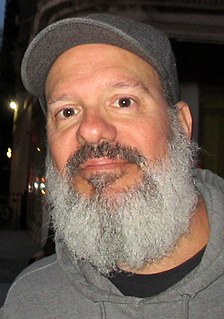A Quote by Louis Farrakhan
The Million Man March was held on a Monday. Most marches were always held on a weekend and most marches were paid for by philanthropic groups and organizations and labor unions, etc. So, the people who came did not necessarily have to make a great sacrifice to be there.
Related Quotes
As you know, there were lots of huge marches around the country yesterday to protest the immigration laws. The marches had quite an impact on businesses. Restaurants had to close, construction sites had to shut down, the Yankees had to forfeit a game. ... Do you realize that Americans are now doing the jobs that immigrants won't do because they're out protesting?
The strange thing about my life is that I came to America at about the time when racial attitudes were changing. This was a big help to me. Also, the people who were most cruel to me when I first came to America were black Americans. They made absolute fun of the way I talked, the way I dressed. I couldn't dance. The people who were most kind and loving to me were white people. So what can one make of that? Perhaps it was a coincidence that all the people who found me strange were black and all the people who didn't were white.
What about precarious labor? It's actually not the most efficient form of labor at all. They were much more efficient when they had loyalty to their workers and people were allowed to be creative and contribute - you know that what precarious labor does is that it's the best weapon ever made to depoliticize labor. They're always putting the political in front of the economic.
The reality is that the founding fathers were land speculators. The fact was that you couldn't vote in this country if you did not own land, and that was basically you had to be a white man who owned land. Now how did they get that land? They basically had to steal it from someone, and that would be probably the Indians. And so most of the initial founding fathers were, while they may have had some really nice ideas about democracy, they had a lot of issues with people of color. They had a lot of issues with people who held things that they coveted.





































